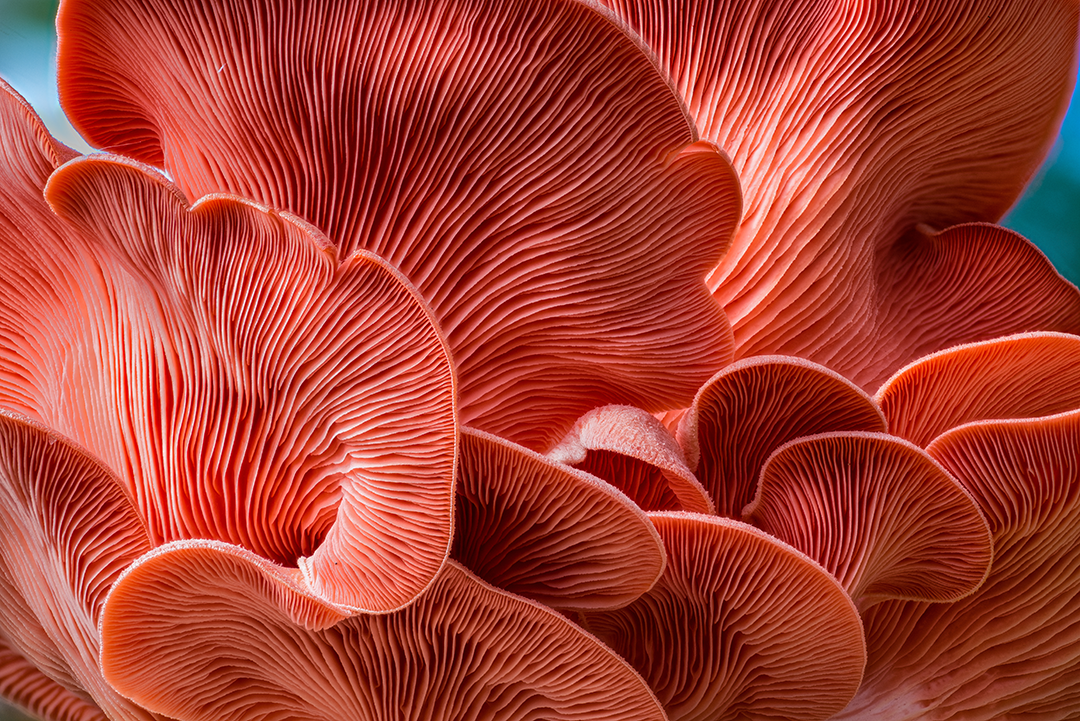Whether they’re capturing national attention as the villain in the hit TV show “The Last of Us,” making headlines as states consider legalizing the psychedelic kind or popping up in advertisements as coffee replacements, mushrooms are having a moment.
Brita LaTona, clinical herbalist and eco-therapy practitioner in Northern Colorado, has noticed an uptick in interest, too.
For the last decade, LaTona specialized in using medicinal plants to help heal the body. She regularly teaches classes on the subject at Golden Poppy Herbal Apothecary in Fort Collins and works one-on-one with clients to address a variety of health concerns.
She primarily works with adaptogenic mushrooms and herbs, which may help to reduce the effects of stress on the body. Adaptogens are herbs and mushrooms—think edible plant extracts—that are thought to have various health benefits. Ginseng, for example, might be one you’re more familiar with.
“There’s been an increased interest in people taking [their] health back into their own hands and really learning about preventative care,” LaTona says. “There’s a renewed interest in taking plants as medicine for healing.”
Adaptogenic mushrooms aren’t hallucinogenic, meaning they don’t contain psilocybin (nor do they cause zombie outbreaks). However, research supports that they can promote normal functioning during times of stress and even increase our resistance to it, according to Healthline.
This is important because modern life can be stressful, even if we could take living through a global pandemic out of the equation. According to the National Alliance on Mental Illness, nearly 20 percent of adults in the U.S. have an anxiety disorder.
Here are some adaptogenic mushrooms that can help:
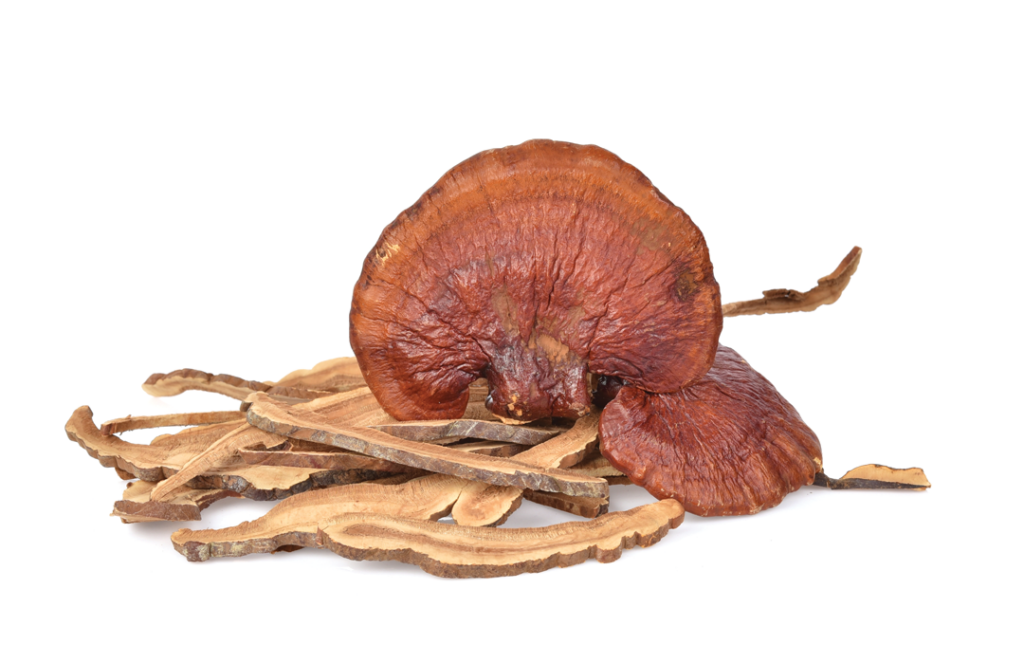
Reishi
Reishi mushrooms are calming, LaTona says: “Reishi has an affinity for the lungs and helps with sleep cycles. It’s very stress-relieving and helps with anxiety. It’s almost like a calm energy builder.”
One study in the Journal of Medicinal Food found that reishi supplements helped to reduce fatigue after eight weeks of taking them.
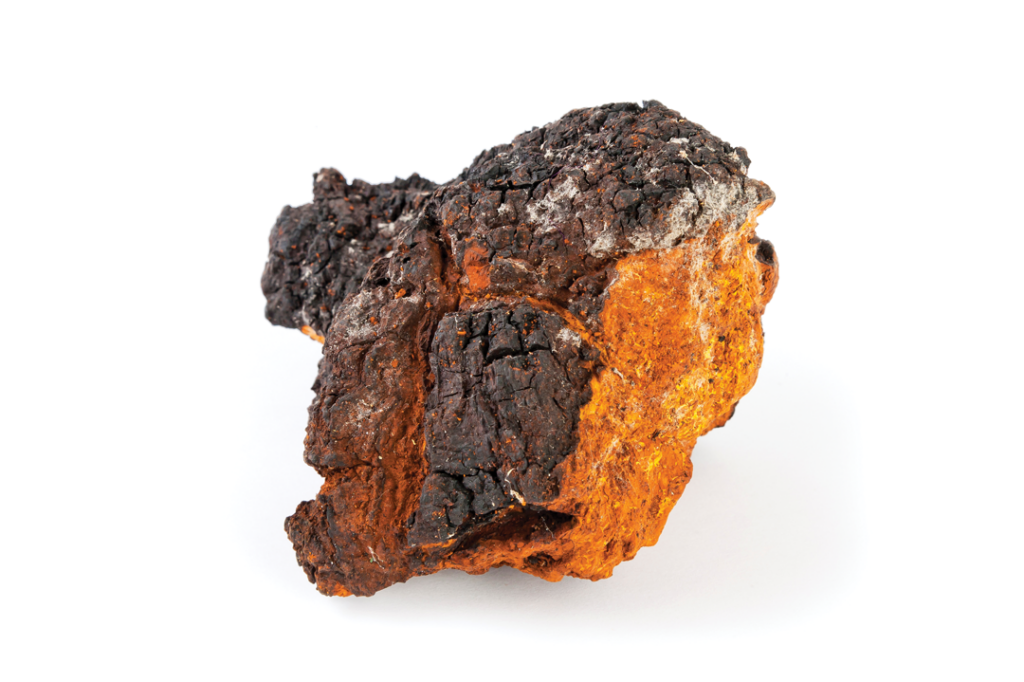
Chaga
Chaga mushrooms also have some stress-relieving properties, LaTona says, in addition to immune boosting potential.
According to Medical News Today, chaga mushrooms may support the immune system by helping cells to communicate with each other, whether they’re fighting off minor colds or a more serious illness.
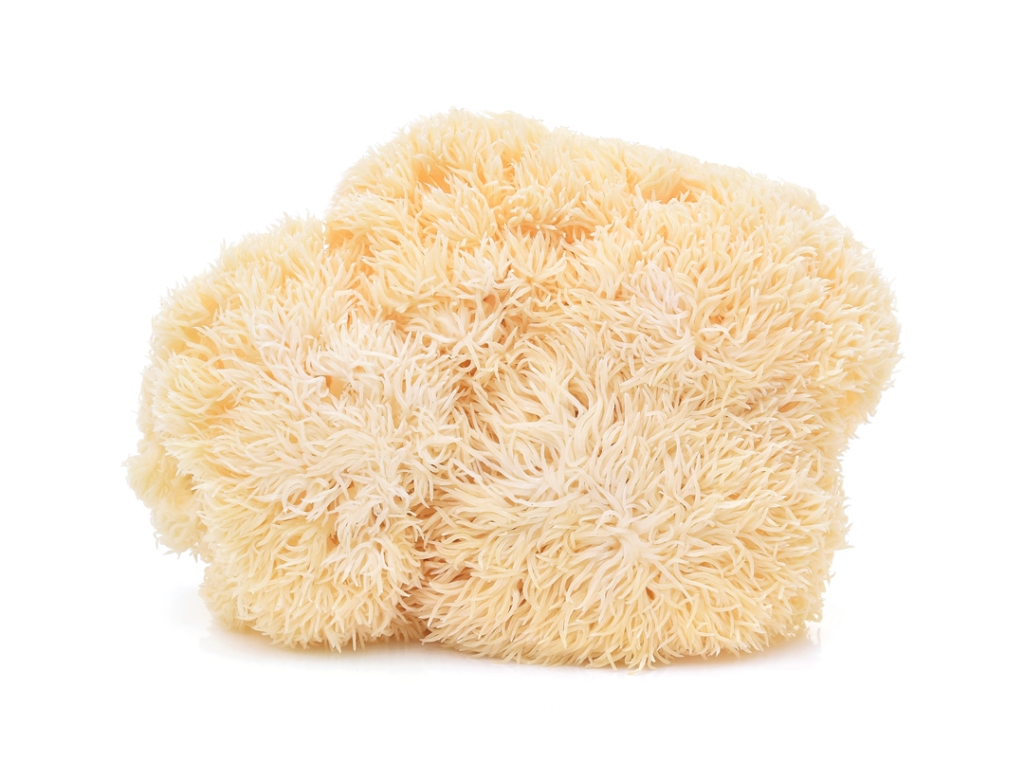
Lion’s mane
Lion’s mane is another major player in the stress relief space. It’s also catching the attention of the scientific community for its effects on the brain.
“It’s a really incredible brain-boosting tonic,” LaTona says. “It’s nerve regenerative and strengthens neural networks and neural synapses. It can be very helpful for brain-related injuries, but it’s also great as an overall tonic for people who experience brain fog or fatigue.”
A study in the Antioxidants Journal found that two compounds in lion’s mane, hericenones and erinacines, can stimulate brain cell growth.
According to Healthline, a recent study on people with mild Alzheimer’s disease found that taking a lion’s mane supplement daily improved cognitive test scores compared to the placebo treatment.
While more research is needed in humans, lion’s mane has also been shown to reduce anxiety and depression symptoms in mice, which is likely due to the anti-inflammatory effects of the mushroom.
LaTona says a good place to buy high-quality lion’s mane (and other mushrooms for that matter) is Hazel Dell Mushrooms in Fort Collins.
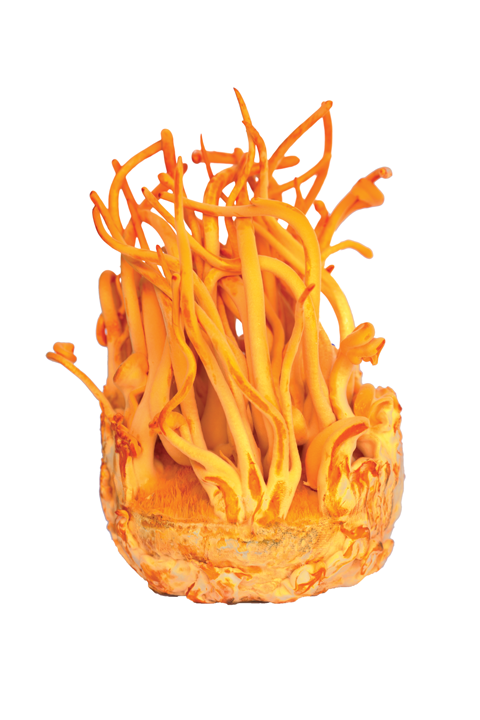
Cordyceps
If you watched “The Last of Us,” this mushroom might sound familiar. This fungi, with its otherworldly tendrils and ability to infect and control various creepy crawlies, is actually edible. And good for you, LaTona says.
Cordyceps are a more intense energy booster, she says, describing them as intense and zippy.
“Cordyceps are more in the realm of endurance training [when] you really need an energy surge,” she says.
Matt Preston, owner and metabolic nutritionist at Colorado Nutrition in Fort Collins and Boulder, says cordyceps are thought to boost production of adenosine triphosphate (ATP), a molecule that is critical for delivering energy to your muscles.
Some studies show that cordyceps improve exercise performance, especially in older and younger adults, according to Healthline.
Mushrooms as food
Mushrooms are first and foremost a food source, LaTona says, and Preston agrees.
“As a nutritionist for the last 15-plus years, I recommend mushrooms all the time as a great addition to almost any meal to give it more fiber, antioxidants, vitamins and texture,” he says. “For the most part, cooked mushrooms don’t have an overpowering taste and can be a great way to add more bulk to a meal without a ton of extra calories.”
Mushrooms such as cremini, button, portobello, shiitake and morel are some of the most commonly consumed mushrooms in the kitchen, he says. Maitake, turkey tail, Ganoderma lucidum, and lion’s mane are good from a culinary perspective, too.
Mushrooms as supplements
If you don’t like the taste and texture of mushrooms, don’t worry. You can still get all the benefits in the form of powders, capsules and tinctures, which are plant properties extracted in alcohol. You can add powders and tinctures to smoothies and coffee or make tea out of them.
LaTona recommends looking for products that have undergone a dual extraction process to maximize the concentration of the beneficial compounds. Her go-to is the 8 Mushroom Superfood Powder Mix by Mālama Mushrooms.
Learn more
LaTona teaches classes and offers one-on-one consultations at Golden Poppy Apothecary in Fort Collins. To sign up for a class or book a consultation, visit goldenpoppyherbs.com.
Preston and the team at Colorado Nutrition offer nutrition planning and coaching. Visit coloradonutrition.com for more information.


